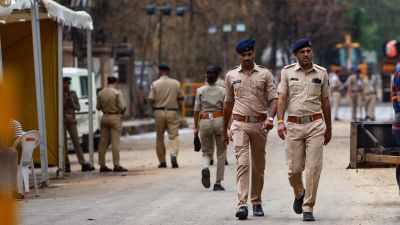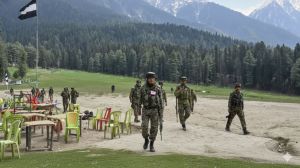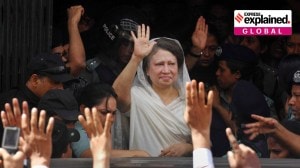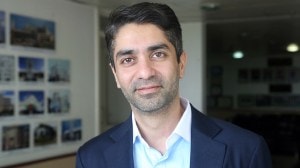Play right, play young
A new pack of young writers is making theatre fresh, hip and fun

At an age when the last thing youngsters agonise about is whether to be or not to be, Ram Ganesh Kamatham, then a 16-year-old, dug up one of the Bard8217;s greatest plays and did a spoof on it8212;Omlet, his reworking of Hamlet. Five years and 10 plays later, the Bangalore-based dramatist made the theatre world sit up and take notice of his experimental Square Root of Minus One 2001, which he considers his first adult play. Since then, Kamatham has written 14 plays, including the much talked-about Crab and his latest Creeper, both a mix of dark humour and biting satire.
Not everyone is an early starter like Kamatham but the number of young playwrights8212;some in their early twenties8212;bringing in a flush of new perspectives has been increasing in the recent years, particularly in theatre hubs like Mumbai and Bangalore. The last Writers8217; Bloc, a festival of plays by new writers, received 100 entries, of which nearly 60 were from writers below 28. Mumbai is again gearing up to celebrate young theatre with the ninth edition of Thespo, a festival for theatrewallahs below the age of 25. The festival, kicking off on December 13, will showcase Pratap Phad8217;s original Marathi play Aayushyamaan, which deals with the fear of AIDS.
The theatrewallahs8217; woe that original plays are hard to come by is not new. But some like Manav Kaul, who traded acting for writing and directing plays, have taken up the pen to fix the problem. The result was Shakkar Ke Paanch Daane, a one-actor play with an unconventional method of story telling. The 32-year-old Mumbai-based dramatist followed it up with Peele Scooterwala Admi, Baali Aur Shambu, Ilhaam and Aisa Kahte Hain8212;all of them characterised by a richness of language and experimentation.
For many other playwrights like Irawati Karnik and Divya Jagadale, theatre gives them an opportunity to explore the joys of writing. 8220;It8217;s a very personal thing,8221; says 25-year-old Karnik, who has dealt with the tricky terrain of personal relationships with humour in her seven Marathi plays, including Aaltoon Paaltoon, Balkadu and Vadani Kavala Gheta.
One comedy which has had a successful run since its debut at the Writers8217; Bloc is The President is Coming by 31-year-old Anubhav Pal, who has also co-written Loins of Punjab Presents. A laugh riot of a play, The President is Coming is a story of a group of six Indians scrambling to shake hands with the US President. Pal, who had written plays like Chaos Theory, Out of Fashion, Life and Love and EBITDA earlier, is currently scripting one on the newspaper industry.
Theatre pundits are happy at the proscenium delights being offered by new dramatists. 8220;I am very impressed with the content and quality of writing in theatre nowadays,8221; says playwright Mahesh Dattani. Rahul Da Cunha8212;whose Rage Productions organises Writers8217; Bloc8212;agrees. 8220;There is a pool of talented young playwrights in India,8221; he says.
But the dramatists who make a difference are the ones with a body of work, says Chetan Datar, Mumbai-based director. The number of such consistent writers is small though the community is growing. Moreover, not too many path-breaking plays are being written. 8220;Only a few are willing to experiment and take risks. Others tread the tried and tested path,8221; says Da Cunha. Echoes Dattani, 8220;Quite a few of them are caught up in the style of writing of Sixties8217; Europe, especially the theatre of the absurd.8221;
Writers like Kamatham, however, are breaking the shibboleths. 8220;I got rid of the linear structure in Creeper, which is inspired by the Vikram-Betal form of story-telling,8221; he says. For Peele Scooterwala Admi, Kaul opted for an unconventional beginning and end while in Aisa Kahte Hain, he strung together several stories.
The prime hurdle for young playwrights remains funds. 8220;I am taking a break to act in a few films so that I can supplement my theatre expenses,8221; says Kaul. Theatre might be Kamatham8217;s passion but he works for cinema, radio and video games. He also writes commissioned plays and freelances for IBM8217;s employee training programmes.
Mumbai-based Jagadale feels the most difficult part for an upcoming playwright is 8220;to find a director who believes in your script. She had it easy with Sunil Shanbag directing her first play Bansuri. 8220;After finding a director, economics and availability of space need attention,8221; says Jagadale, whose second play End of Season premiered at Prithvi Theatre in September.
Bollywood is both an influence and a threat. Da Cunha rues the steep competition from films while Kaul derides its impact on theatre. But the overlapping of film and theatre worlds seems inevitable. After the success of Loins of Punjab Presents, Pal now wants to write and direct another film. Jagadale too is writing a film script while Kamatham is associated with the making of two short films.
All said and done, there8217;s no doubt that this new crop of writers will give theatre a new lease of life. It8217;s time, perhaps, to raise a toast.
- 01
- 02
- 03
- 04
- 05































